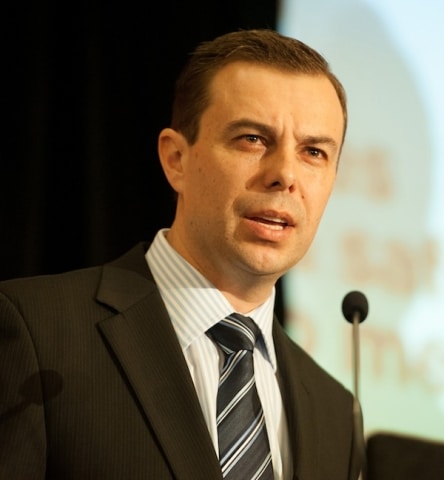THE Australian newspaper has run a free advertisement today for the coal industry in the form of an op-ed column by a leading industry figure that says that coal is one of the best things ever.
And no I’m not exaggerating.
New South Wales Minerals Council chief executive Stephen Galilee, a former advisor to several high-ranking Liberal Party politicians including the now Prime Minister Tony Abbott, writes in The Australian that coal is “one of the greatest overall products in history” and is just totally awesome (he didn’t use the word awesome, that was me).
Galilee’s column in the Murdoch-owned newspaper is the latest repetition of the industry’s favourite PR line that coal can end global poverty.
Tony Abbott, the environment minister Greg Hunt and the Treasurer Joe Hockey have all used this coal industry line in recent weeks.
I’ve written about the industry’s attempt to lobby the G20 for The Guardian and looked at Hockey’s recent contribution for DeSmogBlog. You should go and read those pieces because they are among the greatest overall products blogs in history.
In The Australian, Galilee uses the issue of indoor air pollution in developing countries to try and push his case that coal is super-awesome and is an entirely ethical investment for people to make. He writes:
Affordable and reliable, coal-driven energy is the best answer to global poverty. Almost three billion people have no access to electricity. For these people, “clean energy” means not having to cook their food or heat their homes using gathered wood or animal dung. Cooking in this way emits black soot, damaging air quality inside homes, with associated health problems and millions of premature deaths each year.
Cooking indoors over an open fire or with a crappy stove is a major health problem. The World Health Organization says about three billion people in the world are cooking and heating their homes like this, and it’s responsible for about four million deaths annually.
Here’s the “key fact” as it is presented on the WHO‘s information page about health and indoor air pollution, which refers to the burning of wood and animal dung. But see if you can spot the key detail that Galilee studiously left out.
Around 3 billion people cook and heat their homes using open fires and simple stoves burning biomass (wood, animal dung and crop waste) and coal.
That’s right. The burning of coal indoors in the developing world is actually a part of this environmental health problem. Perhaps Galilee thought that this fact might muddy his argument somewhat? Best to leave it out.
But actually, the immediate solution for people dying and suffering from indoor air-pollution is not to hook them up to a coal-fired power generator, but to provide those people with an efficient cooking and heating stove that reduces exposure to harmful pollutants – regardless of the fuel they use. The Global Alliance for Clean Cookstoves says:
Clean, efficient, durable, safe, and affordable stoves are – along with clean fuels and other products like chimneys and heat retention cookers – central to most solutions to the health, environmental, and other risks inherent in cooking with fire.
Galilee’s argument is disingenuous. The problem of indoor air pollution is not really the fuel at all – whether that be dung or wood or coal – but the way that it is being burned.
Later, Galilee has a brief moment of pragmatism when he writes that a “full range of energy sources” will be needed to meet the rising demand for energy in developing countries. He writes:
All have their impacts and risks, including coal. Hydro requires the building of dams to harness rivers. Solar and wind need large scale manufacturing processes, steel, chemicals and other inputs, as well as back-up power systems, and large land areas for panels and turbines. Oil and gas have impacts, as does nuclear.
They do all have their impacts, but those impacts don’t all become equal just by putting them in the same paragraph. Anyone thinking climate change yet? The World Bank is:
Climate change is a fundamental threat to development in our lifetime. If we do not confront climate change, we will not end poverty
Galilee has to somehow work out how his totally awesome product can end poverty at the same time as being the chief contributor to the greenhouse gas emissions that are a “fundamental threat to development in our lifetime”.
Image credit: NSW Minerals Council
Subscribe to our newsletter
Stay up to date with DeSmog news and alerts







